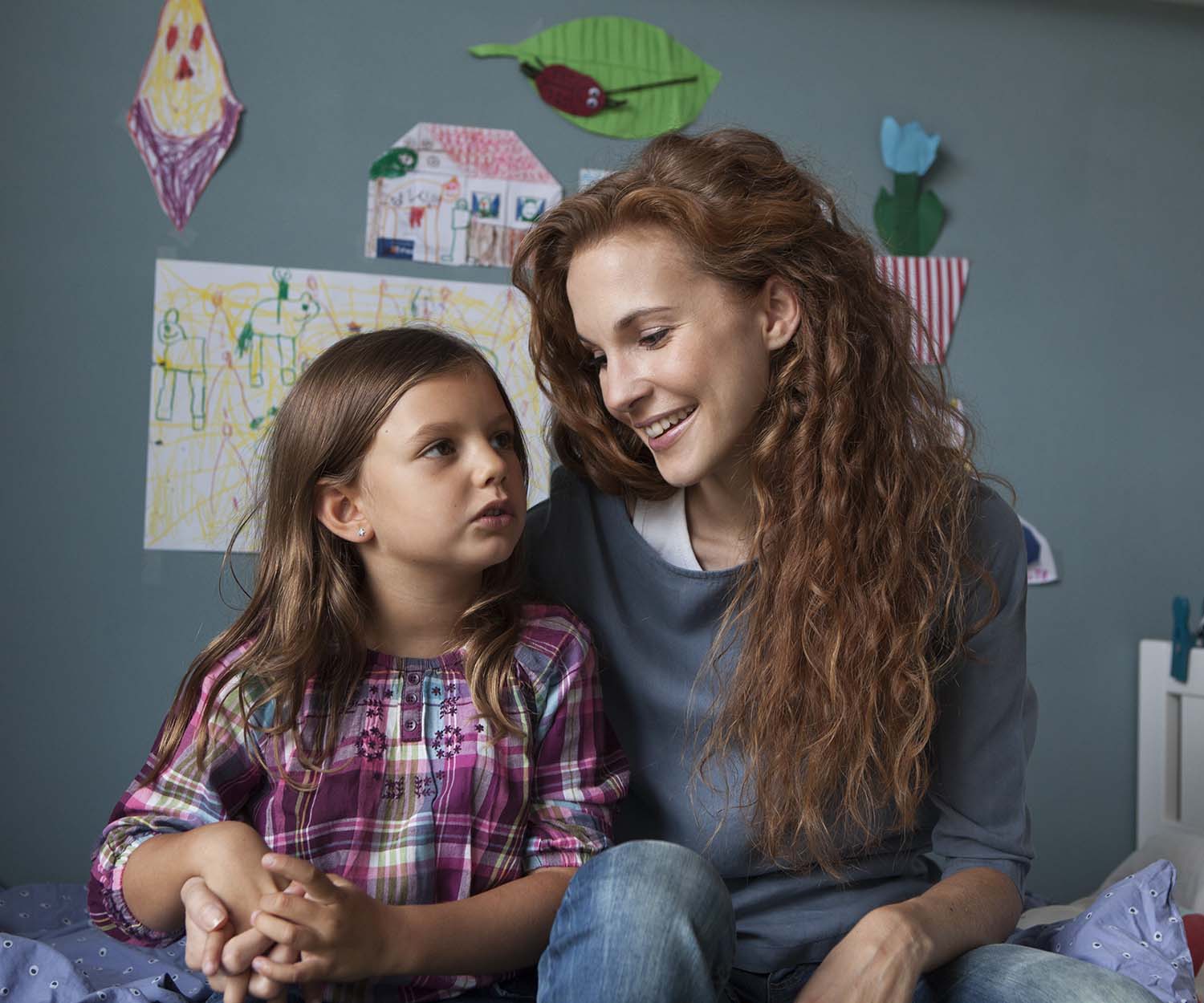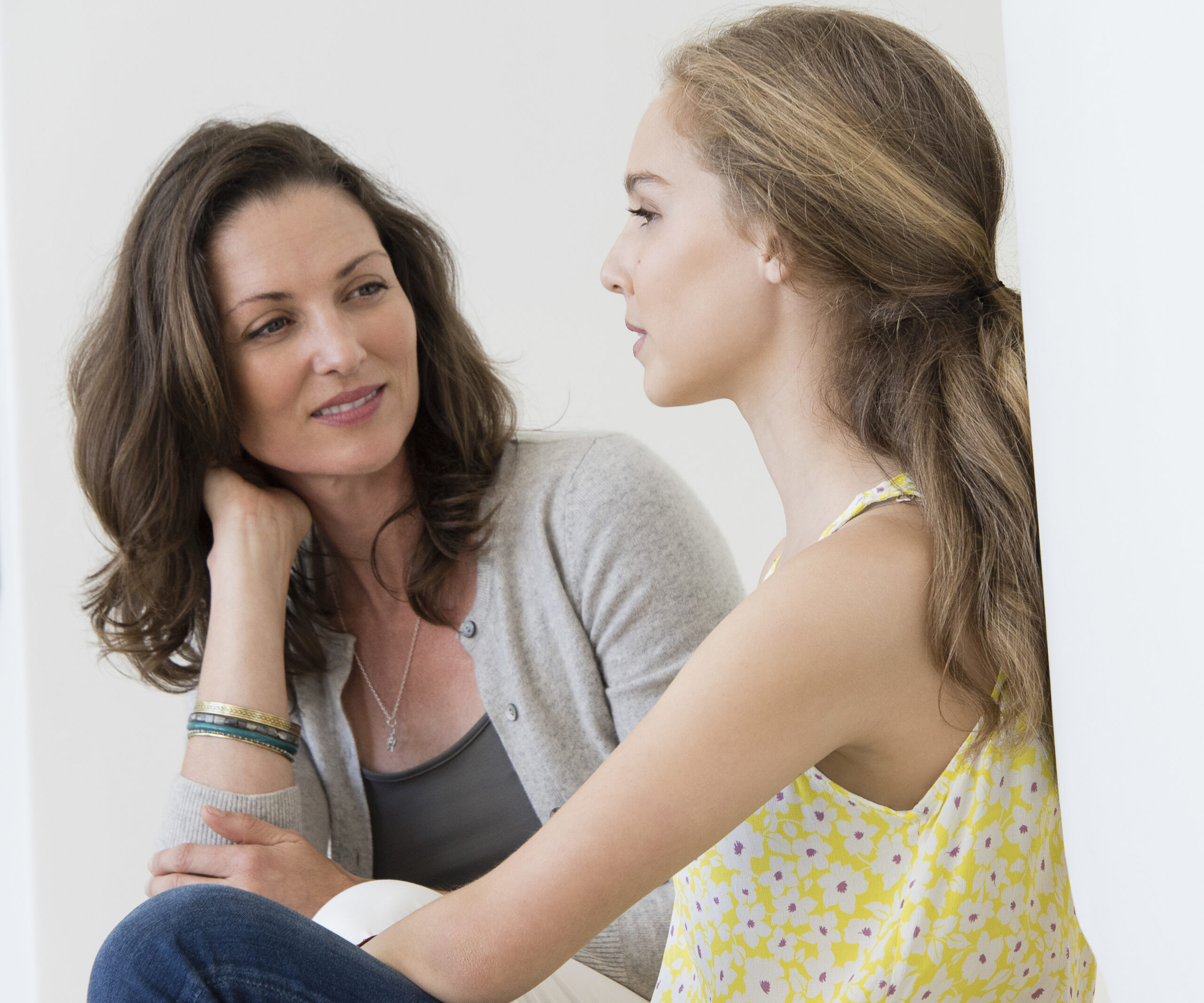A German sex educationist has revealed what kids really want to know about sex in a book that is based on the questions she’s been asked by children over the years – and many of the questions would surprise parents.
Tell Me by Katharina von der Gathen is a cute but at times eye-opening collection of questions and answers that tell you what eight-, nine- and 10-year-olds really want to know about sex, bodies and emotions.
While some of the questions are what you might expect, many more are not:
‘Is sex so important? What does sex feel like? How come people kiss? How come it feels so weird to think about sex? How do you have sex if the penis is too big and the vagina too small?’ What goes on in a sex shop? Can people have sex underwater?’
The 47-year-old mother-of-four has also been asked questions that open up bigger and much more serious issues:
‘What is rape? Can children be gay? Is it bad to have kids when you’re a teenager? What is porn? Why can’t young children have sex? What happens if you get pregnant and don’t want to have a baby? Why do people sometimes lose a baby?’
Katharina says sex and sexuality is “everywhere” in society and children have many more questions than parents realise. Kids are often shut down and told “this is not for you”, yet she encourages parents to talk to their kids about these topics as soon as they show curiosity. By responding honestly and openly, parents can help their children develop healthy attitudes about their body, emotions and sex – which in turn helps them make good decisions for themselves in the future.
She is concerned that, because of the internet, children are confronted with issues they shouldn’t yet have access to, such as pornography.
We asked Katharina to tell us more about her role as a sex educationist and what she has learned from the children she has taught:

Katharina von der Gathen says children have more questions about sex and sexuality than parents realise.
Photograph: Peter Nierhoff
How long have you been working as a sex educationist with children?
I trained as a sex educator 10 years ago. Since then I’ve had a passion for this topic and regularly take educational classes at primary schools. The students are usually eight to 10 years old. Over the years, I have developed my own programme, in which the children engage as playfully, independently and actively as possible with topics such as body education, puberty and sexuality.
What do you like about the job?
Above all I like the openness of children. I look forward each time to the moment when the children realise that the session isn’t about anything bad or even disgusting, but that everything we do and discuss has to do with them. I like it when they realise that I really take their questions seriously and they become more and more curious and questioning.
Are children easier to talk to than adults about bodies, sex and emotions?
Children who haven’t yet reached puberty are usually very open and approachable on these topics. They are incredibly curious. Later, during puberty, other things come up: insecurities with their own bodies and maybe even difficult experiences. How to talk about sexuality and feelings isn’t something people learn about at school or at home. I often notice this at parents’ evenings: many parents would like to do the right thing by their children in this important area. But they often feel insecure about the best way to do it.

An excerpt from Katharina’s book.
What have you observed about children’s curiosity about bodies, sex and emotions?
Sexuality is everywhere in our society: advertising at the bus stop, gay parents in a TV series, a sexist insult in the schoolyard, or when an older sister is making out with a boyfriend. These different situations naturally generate a plethora of questions in children that they then carry around with them. But the message they get everywhere is: “This is not for you!”
It’s been my experience that children ask many questions once they realise they are being taken seriously.
What is the question you are most commonly asked?
There isn’t one question, but there are two main areas that are always the focus: One is about the children themselves and the physical changes in puberty (e.g. “When does hair grow under your armpits?” or “Is puberty awful?”). The other is about adult sexuality (e.g. “How does sex work?” or “Why is sex nice?”).
Are kids embarrassed to ask questions?
Children are embarrassed if they see that the adults are feeling uncertain. But if you show them that you won’t suddenly faint if you say the word “sex” and that you can laugh together about embarrassing situations, then natural curiosity wins out. To make it as easy as possible for the children, I set up a question box in the classroom, in which the children can anonymously place their questions. Sometimes the box overflows!

An excerpt from Katharina’s book.
How should a parent answer a child’s question about bodies, sex or emotions?
I would very much like to encourage parents to talk much more about bodies and feelings with their children. You’ll notice that even if your answers are sometimes awkward or you can’t always find the right words, children don’t mind that. On the contrary! Parents should try to look children in the eye and enter into their world and experience.
Conversations about personal topics always provide the opportunity to develop a close connection.
Is any subject taboo in your classes?
I give this promise from the start in my classes: I will answer any questions that the children ask me. The answer should be appropriate for children and reasonable for all children. This is sometimes a big challenge, because the children are often at very different stages developmentally at this age: while some are already visibly at the beginning of puberty, others are still very young.
In recent years, I’ve noticed more and more that through the internet children are confronted with issues they shouldn’t yet have access to (e.g. pornography). If I find questions in the box that are clearly a special case like this, I sort them out. I no longer answer them in front of the whole class, just with the individual student.
What do you think children should be taught about?
Children should be familiar with their bodies from an early age. They need words for the various parts of a body, they should learn to name their feelings, to stand up for themselves, to feel strong in their bodies and to keep boundaries without feeling bad. Children should get to know their bodies as true miracles, which they can accept and in which they can be comfortable and go safely through their lives.

Tell Me by Katharina von der Gathen (Gecko Press, RRP $29.99) is available in book stores. Suitable for children aged 8 and up.


